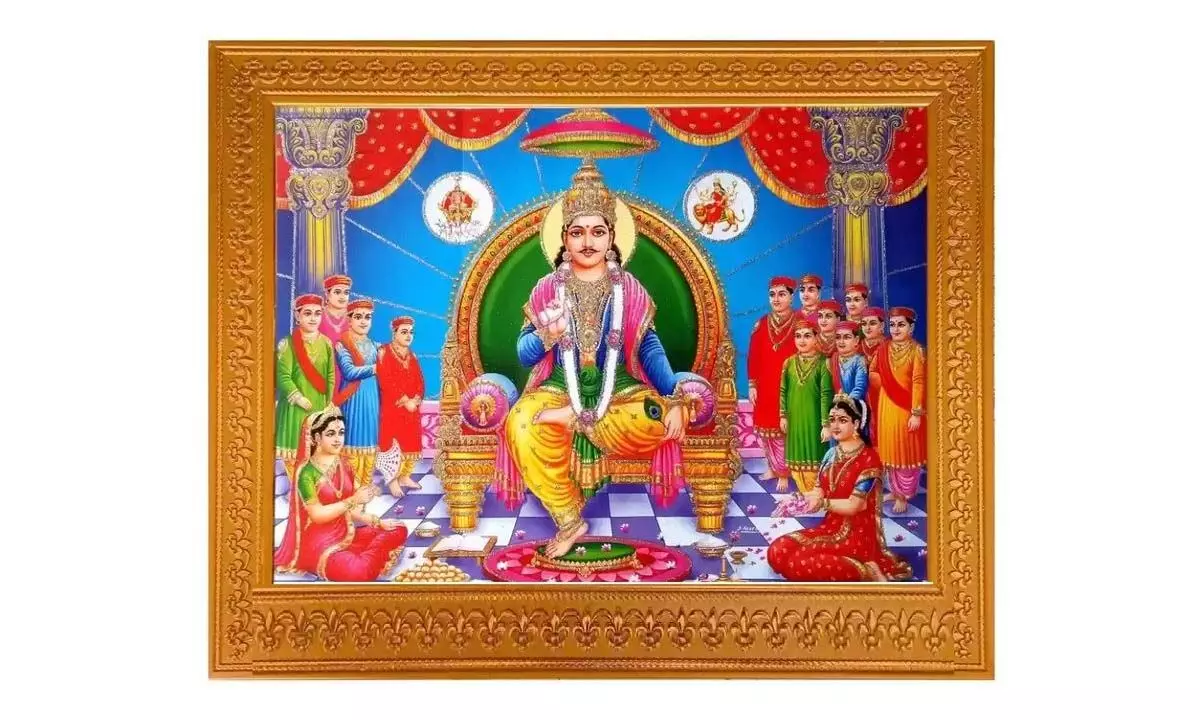Keeping Account of Our Karma

We read about a demigod named Chitragupta in our puranas.
We read about a demigod named Chitragupta in our puranas. The word gupta means a protector, and chitra means surprising. He is thus a marvelous protector. What does he protect? Like a supreme data analyst of all time, he keeps account of the good and bad works of all human beings and puts it before lord Yama, the head of correctional administration. There is a positive marking called punyam for good works and negative marking called papam for bad actions. This is the puranic way of teaching the lay person.
What are good actions? Certain religious rituals seek worldly results (while being alive). Some others are to attain a place called heaven after death. Some others are driven by compassion and love for all beings, without any personal interest. Anyone can judge that the third variety is the most desirable one for society.
Heaven is not much commended in Indian philosophy. It is because heaven is a mere extension of physical pleasures, where one may get better food, drinks, and objects of enjoyment. It is also limited by time. One’s stay in heaven is in proportion to the amount of punyam done by him. Punyam is like a debit card, and there is no credit card in heaven, as the modern teachers say. There exists a protocol, hierarchy, which must be followed. The suprabhatam of Lord Venkateswara says that when Venkateswara adorns his seat in his heavenly world, other gods like Shiva, Brahma and Indra stand jostling with the crowd waiting to see him and, in the process, get knocked on their heads by the heavenly cops (vara-vetra-hathottamangah) with decorated canes, as the suprabhatam says). This is the hierarchy visualized by the Vaishnava poet, but other sects are no less in visualizing a reversal of hierarchy.
‘Those who treat heaven as the goal are selfish’, says Krishna (Gita, 2-43). They are attracted by the allurements of heavenly worlds and never enter the path of knowledge. They keep shuttling in countless births and deaths and Chitragupta keeps noting their karma.
Escape from this is only by neutralization of the fruit of karma. It does not happen if a person merely stops doing any good or bad work and avoids both positive and negative karma. That is just not practicable because the worldly activities must go on. A seeker must perform his duties in such a way that he does not even get punyam, the positive stock. This happens when he performs his duties and does not expect punyam from that. These compulsory actions are for all people for the smooth running of society. These are like the fundamental duties, but they carry a negative effect (papam) if not done. There is no emphasis on fundamental rights in our texts, but fundamental duties are specified. The idea is that if everyone does his/her duty, the rights of all others are taken care of.
Society stands on three fundamental pillars – yagna, charity and tapas, says the Brihadaranyaka Upanishad. Here, yagna does not refer to fire ritual but denotes five daily obligations intended to purify our actions. Worship of the deities, respecting elders, being kind to all living beings, giving food to guests, and study of scriptures are the five obligations, treated as five great yagna-s. I may visit the temple every day seeking advancement, but it does not count much. If I have not taken care of my elders, or not given food to a guest, I am a sinner. Study of scriptures is another great yagna. The other two pillars are doing charitable actions and practicing tapas, self-restraint. Performing these three duties as a duty to the Omnipresent, manifesting as people around us, is the skillful way of doing karma, because one does karma but not touched by its result. This is the only way for inner purification.
We add our shoulder to the cosmic wheel, the wheel of Jagannatha, the lord (natha) of the universe (jagat), when we help others. This is the real pulling of the chariot of the Lord.
(The writer is a former
DGP, Andhra Pradesh)

